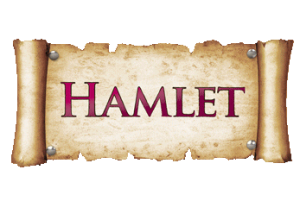Rehearsals of Hamlet original pronunciation or O.P, proved revelatory, and the students initiated a blog to track their discoveries. New wordplay emerged from a text with which the directors were thoroughly familiar.
The personalities of the characters attained greater contours than they would have in either Standard American or in R.P. (Received Pronunciation, or what used to be known as “BBC English”).
While the text at first seemed somewhat foreign to the actors and directors, it grew to sound utterly natural over time.
What does O.P. sound like? A blend of Irish, Scottish, Southern American, and, as many folks have half-jokingly noted, “pirate.”.
Intriguingly, it sounds nothing at all like what people often presume to be a “correct” or appropriate pronunciation of Shakespeare replete with plummy vowels. The diction sounds more colloquial and conversational than the patrician dialects most often associated with Shakespeare productions.
The O.P. had the effect of rendering all characters, whether royalty or commoner, of the same class. This buttressed Shakespeare’s almost forgotten habit of eliminating differences between princes and paupers.
The O.P. had the effect of erasing the all-too-standard distinction between the cockney speaking Gravedigger and the characters of the court.
The Classical Studio shared its many discoveries with the community of the Department of Drama. They did so by hosting a symposium that brought together students, dialecticians, directors, and historians.
Noted dialect authority, Paul Meier, Skyped in from the University of Kansas to address the conference.
In addition, the Studio partnered with Laura Levine, an Associate Professor of Theatre Studies, and her “Shakespeare and Epistemology” honors seminar, on our exploration of the value of O.P. for both production and scholarship.
We all had a rewarding and enlightening experience

